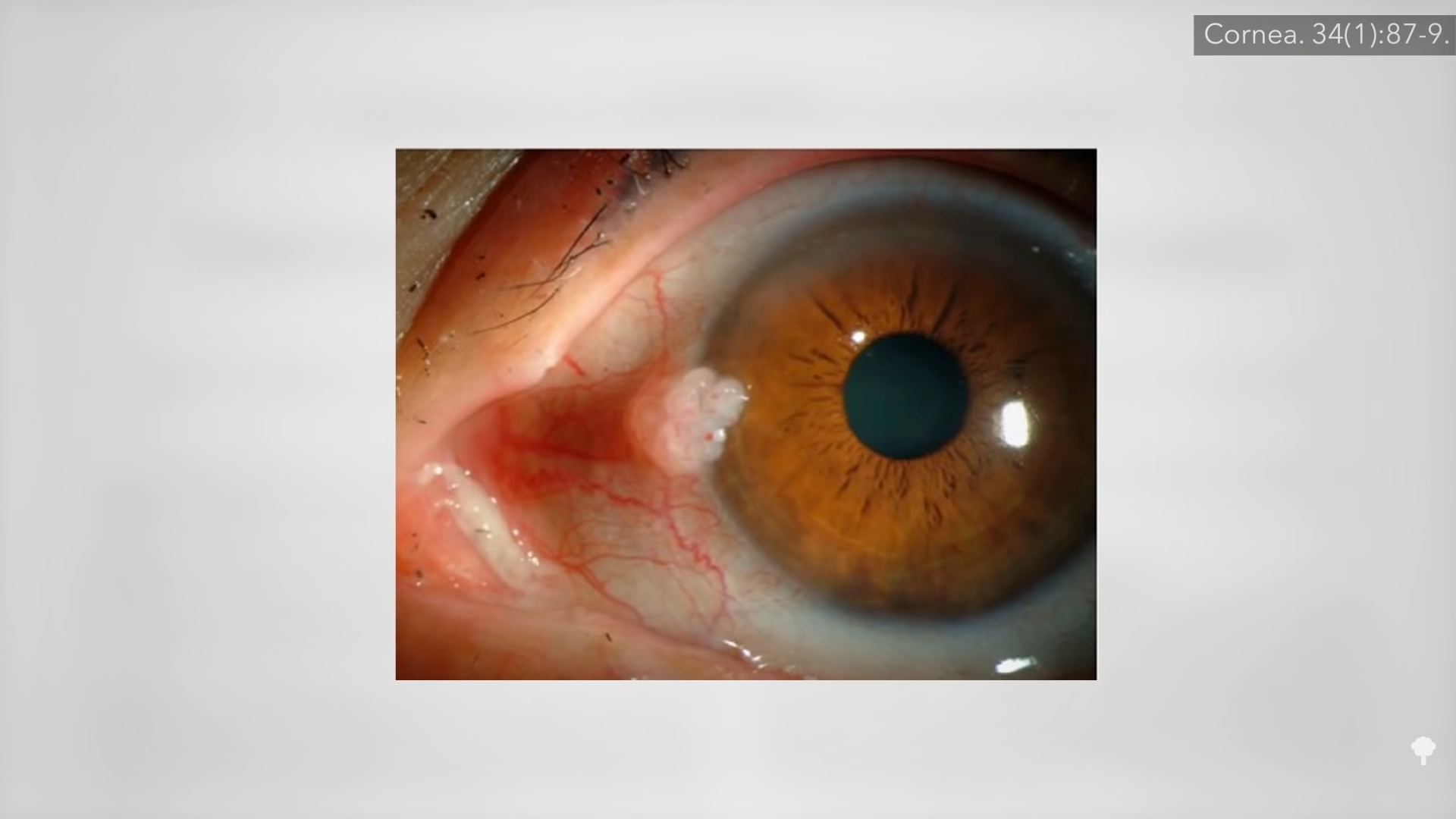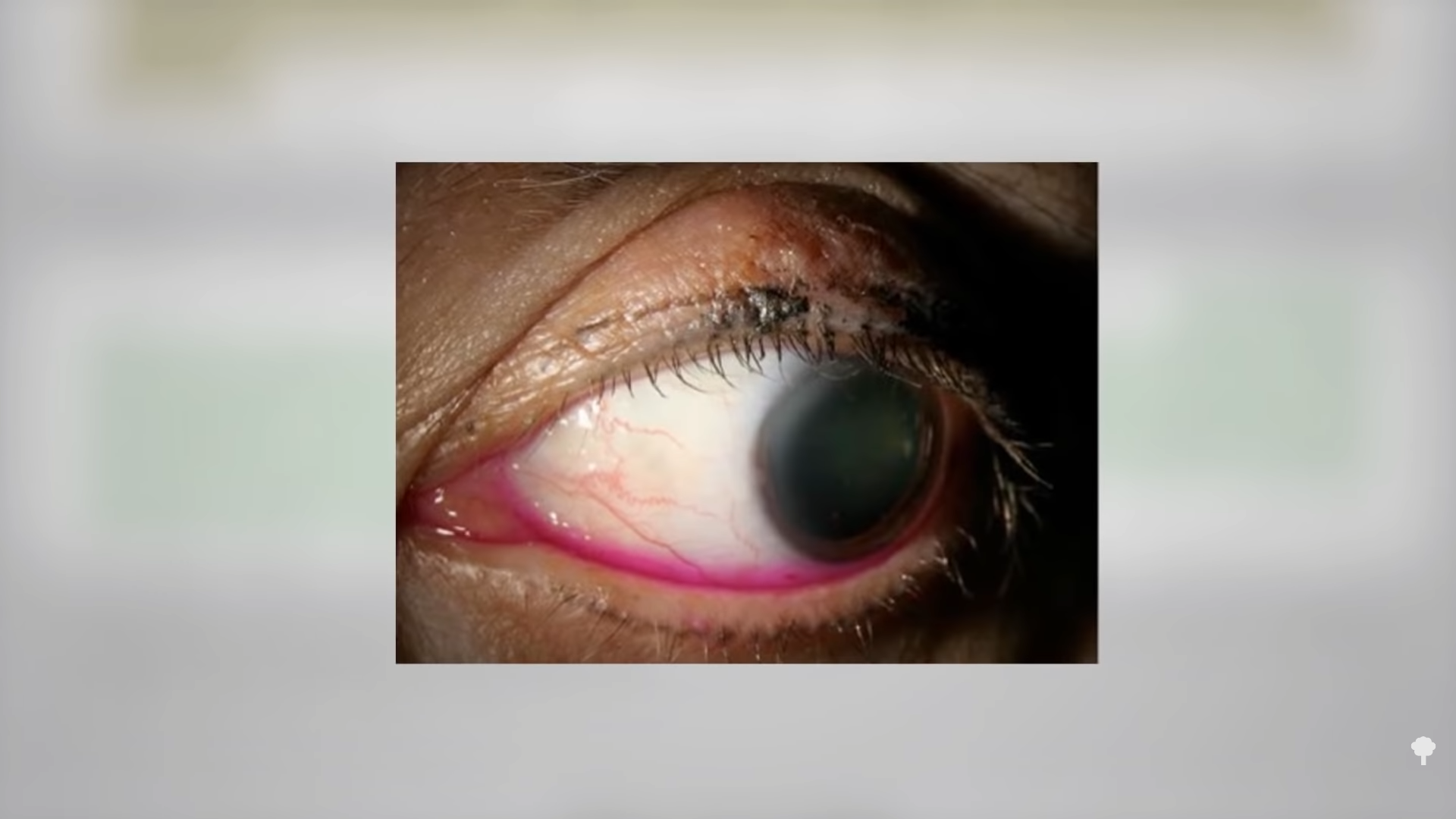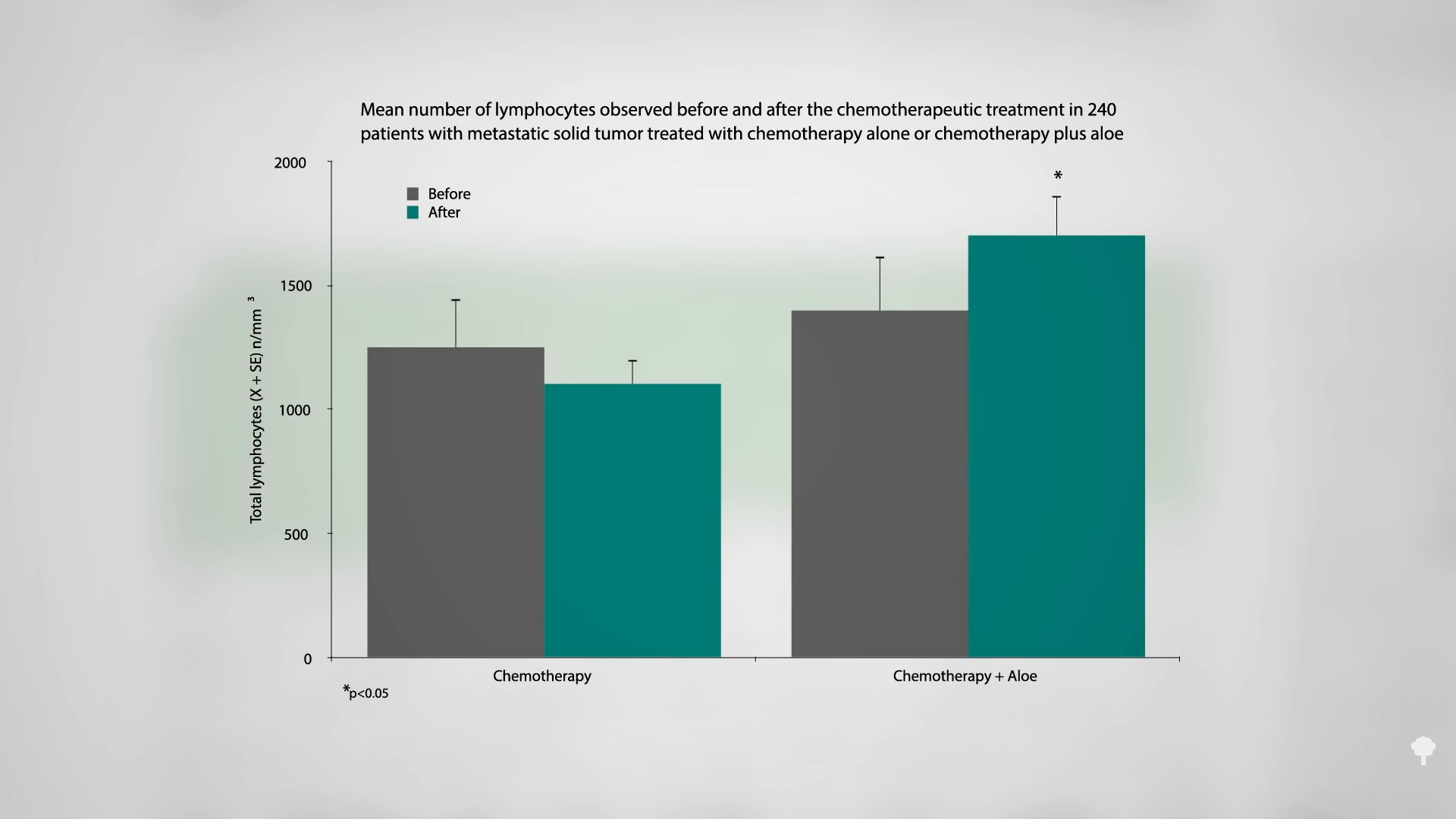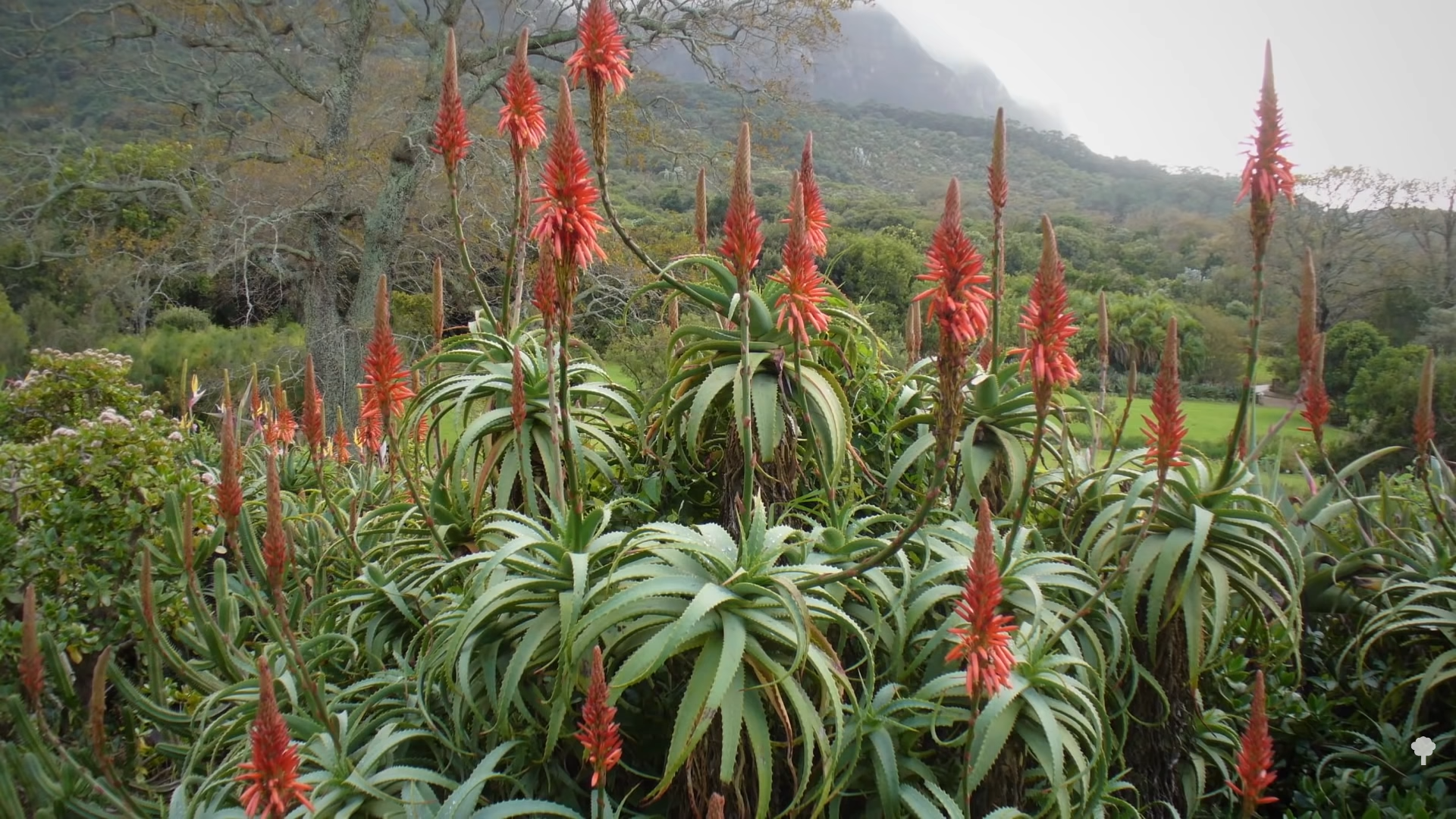From a specimen report to a randomized controlled trial, aloe is put to the test versus cancer.
For a half century, aloe vera “gel processors and distributors armed with biblical quotes and segmented testimonials…[have sought] recognition for their products”—too often, however, “accompanied by misinformation,” none increasingly elaborate than promoting aloe vera for the treatment of cancer. As I discuss in my video Can Aloe Cure Cancer?, there was a recent specimen report involving a 64-year-old Hispanic woman with a tumor on her eyeball, which, as you can see unelevated and at 0:31 in my video, looked like a archetype specimen of ocular surface squamous neoplasia (OSSN), a type of eye cancer.

Surgery was recommended to remove it, “but the patient declined it, and instead initiated the use of well-matured A. vera eye drops 3 times daily based on a friend’s suggestion.” She just used an off-the-shelf aloe vera gel product, and, to the doctor’s surprise, the “lesion showed significant resurgence from only 1 month before….At the follow-up 2 months later, the patient’s lesion was noted to have dramatically regressed.” When the specimen report was written, “6 years since her initial presentation,” it appeared the cancer was gone and had stayed gone, as you can see unelevated and at 1:04 in my video.

Normally, you’d go in and cut out the cancer with wide margins to make sure you got it all, considering “despite the weightier efforts of the ocular surgeon…recurrence rates as upper as 56% have been reported considering of the presence of microscopic disease that is not clinically evident at the time of surgical excision.” In other words, little shit of cancer may be missed on surgery. In this case, though, a tumor disappeared without any surgery at all.
Are we sure it was cancerous? The patient had refused a biopsy, so we don’t know for certain. However, it did have all the defining characteristics. So, to see the tumor disappear without any side effects and stay gone is pretty extraordinary. “Surgical resection still remains a very reasonable treatment option for many cases of OSSN,” but at least there’s an option for patients to try if they don’t want to go lanugo that route.
Of course, this was just a single specimen report without a tenancy group. It isn’t as though she had tumors in both vision and tried the aloe on only one. There was a controlled study that I present at 2:08 in my video that suggested aloe could prolong survival in those with wide untreatable cancer, but it wasn’t a randomized controlled study. A decade later, we got just that.
Hundreds of patients with metastatic cancer were randomized to receive chemotherapy with or without aloe, and, as you can see unelevated and at 2:28 in my video, the aloe group had three times the number of well-constructed responses and significantly greater objective tumor responses, and two-thirds had some level of disease tenancy compared to only half in the non-aloe group. But, does that translate out into improved survival? Yes. For example, at one year, 70 percent of the aloe group were still alive, whereas most in the non-aloe group had died.

As a bonus, the “chemotherapy was substantially largest tolerated” in the aloe group, with less fatigue, for example, and largest maintenance of their immune system, as you can see unelevated and at 2:59 in my video. So, given the largest disease tenancy and the largest survival, “this study seems to suggest that Aloe may be successfully associated with chemotherapy [as an add-on therapy] to increase its efficacy in terms of both tumor regression rate and survival time.”

As I mentioned, this was a randomized controlled study, but it wasn’t a randomized placebo-controlled study. It’s not as though the tenancy group got a fake aloe drink, so some of the tumor response may have been a mind-over-matter placebo effect.
There are potential downsides to aloe, though. As I explained in my video Is Aloe Vera Gel the Weightier Treatment for Lichen Planus?, in rare cases, swallowing aloe can trigger liver inflammation and cause electrolyte imbalances due to diarrhea or vomiting. For example, there was a specimen reported of aloe-induced low potassium in a patient with breast cancer, which rapidly resolved once she stopped the aloe, thought to be due to the laxative effect aloe can have.
If you want to talk to your doctor well-nigh giving it a try, note this was not aloe vera, but aloe arborescens, a tree-like aloe that can grow to be ten feet tall, as you can see unelevated and at 4:08 in my video. The suffusion the researchers made was a mixture of well-nigh two thirds of a pound of fresh aloe leaves to a pound of honey, plus well-nigh three tablespoons of 40 percent alcohol, and it was given orally at a dose of two teaspoons three times a day starting six days prior to the onset of chemotherapy.










